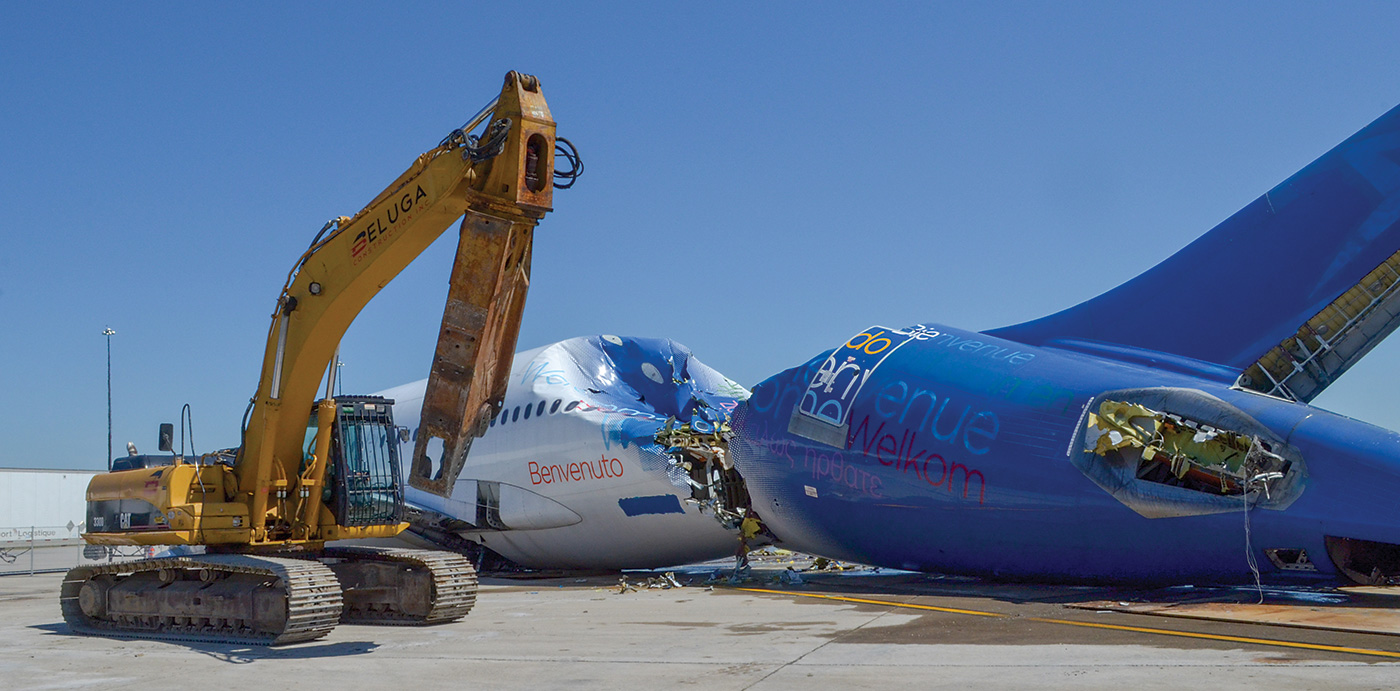Estimated reading time 6 minutes, 22 seconds.
According to the Aircraft Fleet Recycling Association (AFRA), the leading global organization for developing and promoting the safe and sustainable management of end-of-life aircraft parts and components, an estimated 12,000 commercial aircraft will be retiring in the next two decades.
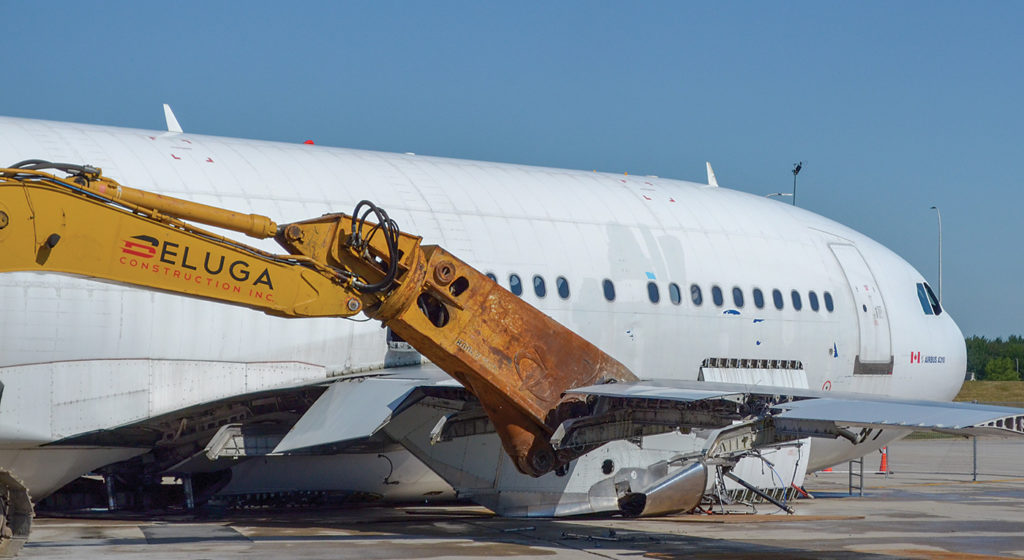
Factors such as corrosion, metal fatigue, and difficulty in getting replacement parts, as well as the improved fuel efficiency and lower maintenance costs of newer models, combine to make the older machines less economically viable and a heavy weight on the bottom line. That means they must go.
But go where? In North America, for many years, that meant a trip to the U.S. Midwest desert for storage, primarily because the arid climate removes the need for hangaring. The Mojave Air and Space Port in California (over 1,000 civilian planes stored) and the Davis-Monthan Air Force Base in Arizona (over 4,000 aircraft stored) are just two examples.
Ron Haber has a different idea of what to do with end-of-life airliners, rather than leaving them to bask in the desert sun. As founder and CEO of Canadian company Aerocycle Inc., he sees tremendous opportunities for providing aircraft owners with a comprehensive management package for disassembly, part-out, teardown and recycling services for end-of-life aircraft.
“It’s a triple-win situation,” Haber noted in a recent interview with Skies. “It’s good for aircraft owners as we provide them with an economically attractive, revenue building solution in dealing with their retired aircraft. It’s good for the local economy as we provide for an increased workforce of skilled workers at premium wages. And it’s good for the province and the country, as Aerocycle adds a valuable element to our growing aviation and aerospace industry.”
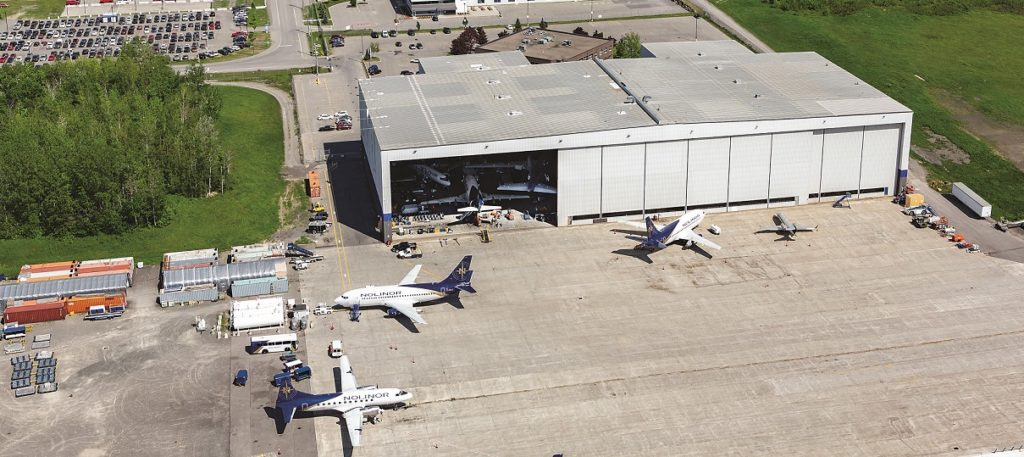
Based in Montreal, Aerocycle was created in 2013 following a pilot project for Air Transat involving the disassembly of an Airbus 310-300 at the Montreal-Mirabel International Airport. Haber noted that a key element in Aerocycle’s successful bid for the project was his extensive experience as a senior executive in the IT sector, where well planned and well implemented protocols are standard operating procedures. His team applied the same rigour and extensive planning in developing their bid, something that was clearly noted during Transat’s assessment and subsequent acceptance of their proposal.
In founding Aerocycle, Haber brought together a team with over 25 years of experience in the field of recycling end-of-life equipment, as well as extensive expertise in the fields of aeronautical parts and electronic equipment recycling, sustainable development and enterprise development.
The company’s processing site is another key to successful operations. “Our location at Mirabel International Airport provides significant advantages for customers,” stated operations director Sébastien Bérubé. “They can rely on highly specialized, fully accredited and environmentally responsible aircraft end-of-life solutions — now offered in Canada — in addition to achieving considerable cost savings.”
With an average recovery rate per aircraft of more than 90 per cent, Aerocycle ensures maximum dismantling in order to meet the highest environmental protection standards. As an AFRA-accredited dismantler, and an Aviation Supplier Association ASA-100 accredited parts supplier, Aerocycle can store, sell, send for overhaul or scrap aircraft parts under a strictly controlled process.
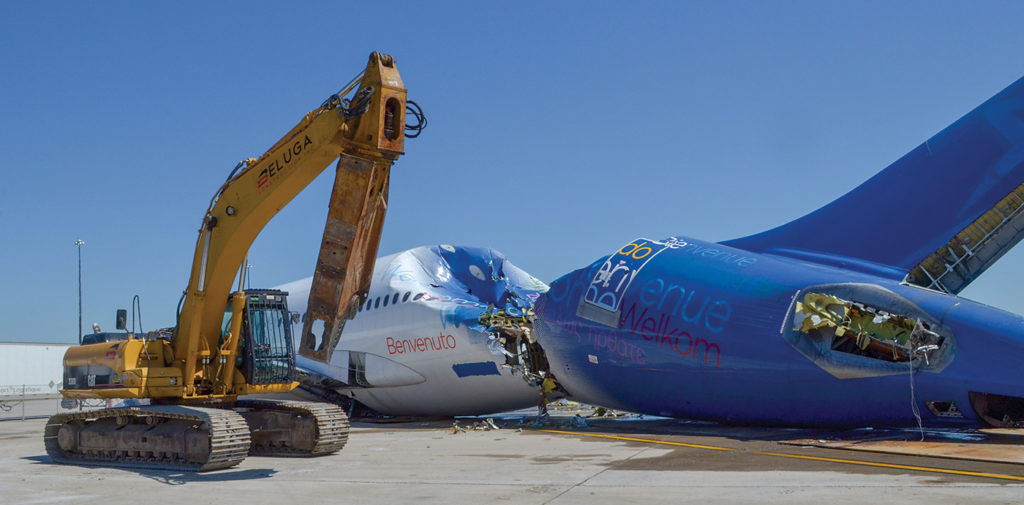
This includes processing and certification of aircraft parts so they can be sold or consigned, through certification of parts by a Transport Canada Civil Aviation (TCCA), Federal Aviation Administration (FAA), or European Union Aviation Safety Agency (EASA) approved maintenance organization (AMO).
The process
When an aircraft arrives at Aerocycle’s Mirabel facility, it is subject to a methodical process specifically designed for that aircraft type. Before dismantling begins, a series of tests determines the status of the aircraft systems. The aircraft fuel tanks are then defuelled, drained and vacuumed. The hydraulic systems are also drained and purged and hazardous materials are disposed of in accordance with local regulations.
The next step is removing the various parts, where each part is inspected, tagged, packaged and processed for storage, sale, overhaul or scrap. The remaining materials such as interior components, trims, flooring, insulation, wiring, connectors, and so on are then removed.
The final step is to cut the airframe into smaller sections to be sent to metal recyclers. The entire process takes from a few weeks to six months to complete, depending on the specific package designed for each aircraft owner’s needs.
For a quick look at what final demolition looks like, readers can watch a one-minute time lapse video of Aerocycle recycling a Boeing 727 that formerly belonged to Donald Trump.
Accreditation
Aerocycle is both AFRA and ASA-100 accredited.
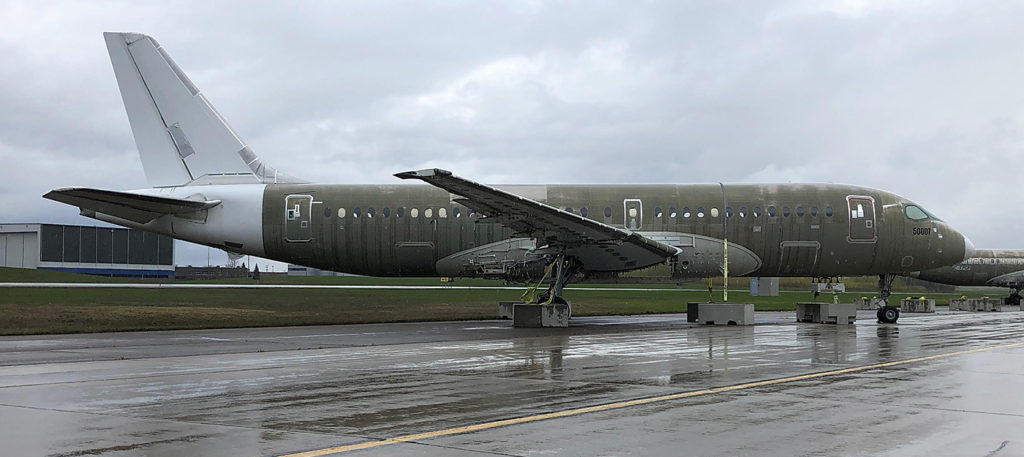
“These certifications not only confirm Aerocycle’s place in the aerospace industry in Quebec and Canada, they also mark a first step toward the creation of a Quebec-based industrial centre dedicated to the sustainable management of end-of-life aircraft,” noted Keith Lawless, senior director, Asset & Environmental Management, Air Transat.
The AFRA is an international non-profit association aiming to promote environmental best practices, regulatory excellence and sustainable developments in the fields of aircraft disassembly, as well as the salvaging and recycling of aircraft parts and materials.
The ASA-100 standard has been developed by the Aviation Suppliers Association (ASA) to provide distributors with the basic framework to assist them in pursuing voluntary accreditation. It is structured to provide those companies which sell parts, supplies and/or material for installation on civil aircraft with a quality system to satisfy the requirements outlined in the FAA advisory circular (AC) 00-56 Voluntary Industry Distributor Accreditation Program.
CEO Haber is also aware of the market advantage that comes with a low Canadian dollar compared to the Euro or the U.S. dollar. “We can offer comprehensive services at a significantly lower cost than European or American companies who offer similar services.”
In addition to complete disassembly, recycling and disposal of aircraft, Haber expanded on how Aerocycle can accommodate a wide range of customer-specific needs.
“Whether it be something as straightforward as short- or long-term storage – where aircraft are kept in airworthy condition through maintenance performed by an Aerocycle-affiliated AMO – to aircraft pre-purchase inspections, importation services and aircraft records audits, or other specific needs defined by a customer, we provide a one-stop solution that fully meets their needs in an environmentally responsible manner, with significant cost savings in the process.”
